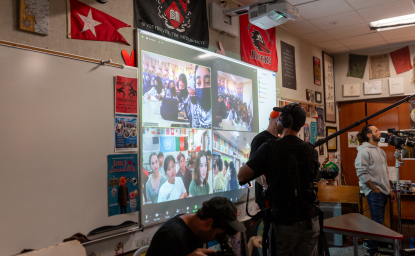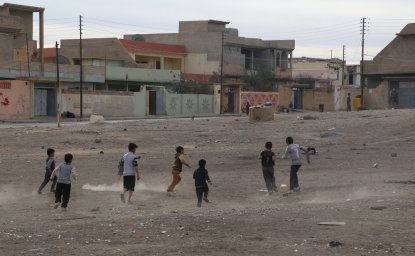On July 20, 2017, CIA Director Mike Pompeo spoke at the annual Aspen Security Forum, a gathering of leading thinkers, government officials, and journalists in Aspen, Colorado. Pompeo addressed the major threats the United States is currently facing, including the threats posed by ISIS and al Qaeda. The following are excerpts from the interview.
ON ISIS
MR. STEPHENS: So let's get right to it. I want to start with Syria, it's been in the news not just for years but in particular this last couple of days, I just want to ask you a general question. What in your -- who in your view is the enemy in Syria.
MR. POMPEO: Yeah, so I'll give you the intelligence perspective on that and it is not singular. So I suppose you start with the threat that America is most involved in today that is the defeat of ISIS, mostly in the north and along the east but of course they will come up in another flavor one fine day. The agency is, along with our great partners from DOD and foreign partners are working diligently to defeat ISIS in that particular region.
____
MR. STEPHENS: Do you have -- do you see any evidence that Russia has actually pursued a serious strategy against ISIS as opposed to more moderate rebels who we have supported or otherwise would tolerate?
MR. POMPEO: No.
____
MR. STEPHENS: I want to stay in the Middle East a little bit more and talk about two -- two issues that are obviously on people's mind. Obviously, I want -- I'd like to ask you a little more about ISIS and what is the post Raqqa -- once we get there -- what is the post Raqqa strategy for dealing with it.
MR. POMPEO: So we've been working on this a lot longer than post Raqqa, we have been trying to figure out -- we ultimately, we the CIA, has known for a long time that ultimately we would be able to take the real estate back from them, mostly DOD partners doing the good work to retake that ground along with their liaison partners. It was inevitable that our team would be able to do that, and we are, and it's painstakingly slow.
And so we've been working hard and long to figure out what it is, how do we prevent a second coming of ISIS or the metastasization of ISIS into something different, and we're seeing it already, right. There are ISIS branches in a dozen places today. So it is not just these strongholds that are very much in the news in Syria and in Iraq. We're going to have to work to pressure that, to provide CT pressure in a way that CIA and DOD know how to do, right, we broke the back of al Qaeda. We crushed them. We didn't do it just by taking out a handful of folks. We took down their entire network. And that's what we're going to do again.
MR. STEPHENS: So what are the some of the places that worry you most?
MR. POMPEO: So the places where they can get to Europe present the most discreet threat. That is places like ISIS in Libya, ISIS in Sinai. And certainly there are remnants of ISIS in Iraq and Syria places where they can get through Turkey and into Europe, and then ultimately make their way relatively easily into the United States.
MR. STEPHENS: And is there an effective counterterrorist strategy once you have ISIS cells really embedded in European society that then becomes more of a policing issue, how do you -- how do you deal with that kind of threat?
MR. POMPEO: It does. It becomes a law enforcement issue. And we work closely with our European law enforcement counterparts to help them. But those folks talk to people around the world. They engage in resupply, they are engaged in training, all kinds of networks that the Agency is very, very good at identifying. And we can help those European law enforcement agencies identify these cells and take them down. It's a tough challenge.
MR. STEPHENS: So is ISIS as dangerous without its territorial caliphate or with it?
MR. POMPEO: They’re dangerous. I mean -- I prefer them not having a caliphate to the extent that there isn’t pressure on terrorists to the extent they have the capacity to operate and communicate and build up their network, they present more risk to our homeland, so yeah, I think we’re infinitely better off with them not having the real estate or any real estate.
____
MS. DOSHER: Kim Dosher (phonetic). Military commanders have described the fight against ISIS as a generational fight. But it sounds like you're describing it as a little bit faster to wrap up, do you think we can see them diminished in the next five years and do you really think that al Qaeda has -- you know their back has been broken and they're no longer a threat?
MR. POMPEO: Yeah Kim, I hope I didn't imply the latter nor that this was going to be simple and over in a couple of years, I didn't intend that at all. It is the case they are diminished, right. In the Middle East today ISIS is about 50 percent of the end strength that they were at just a short time ago. And their capacity to recruit today is less than it was at the peak. So there - - that -- that's a true statement. But the threat from terrorism, from radical Islamic terrorism is something we're going to be at for an awfully long time.
I tell my team at the agency all the time we need to be prepared to execute on this mission for an awfully long time, we need to be sustainable, we need to put our people in the right places so that they can continue to execute that in a way as it evolves and we need to be out in front of them anticipating what it will look like whether that's a year or 5 or 10 years from now.
And we actually spend a lot of time with our Special Forces partners working on how to do that effectively. Generational, yeah, perhaps, long time, we are going to at it for a while.
____
ON AL QAEDA
SPEAKER: -- that they believe, Hezbollah was the A team of international terrorism, al Qaeda the B team. So I'm going to ask you to update that, what is the CIA's view? Is Hezbollah still the A team of international terror al Qaeda and ISIS the B team? And does Hezbollah, do you believe, represent a threat to the American homeland.
MR. POMPEO: So I'll answer the last question, yes, Hezbollah absolutely presents a threat to the American homeland, whether they're the A or the B team they are a serious threat, they have the enormous benefit today of having a state sponsor, which gives them a ton of freedom and a whole lot of money. And so Hezbollah is certainly a very serious threat, not only to Israel but to the United States of America. And you know al Qaeda, to Kim's question earlier, we broke their back but it's, as my basketball coach once said, it's never over, I have every intention to see them once again try to regain power on the battlefield in lots of places around the world.
Click here for the full transcript.

The Islamists
Learn more about Hamas and how it relates to similarly aligned organizations throughout the region. Read more

Explore More
Browse Insights & Analysis
Israel Expands Operations on Multiple Fronts: Perspectives on the Conflict


